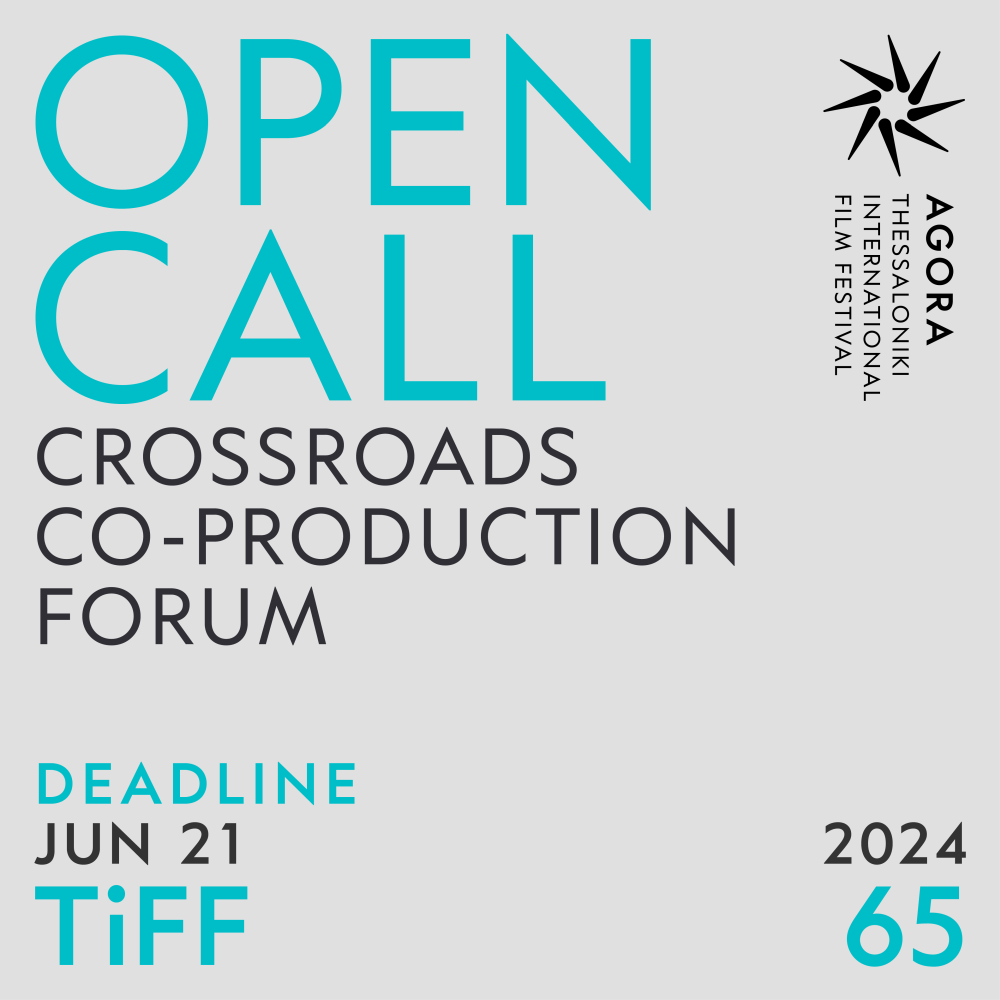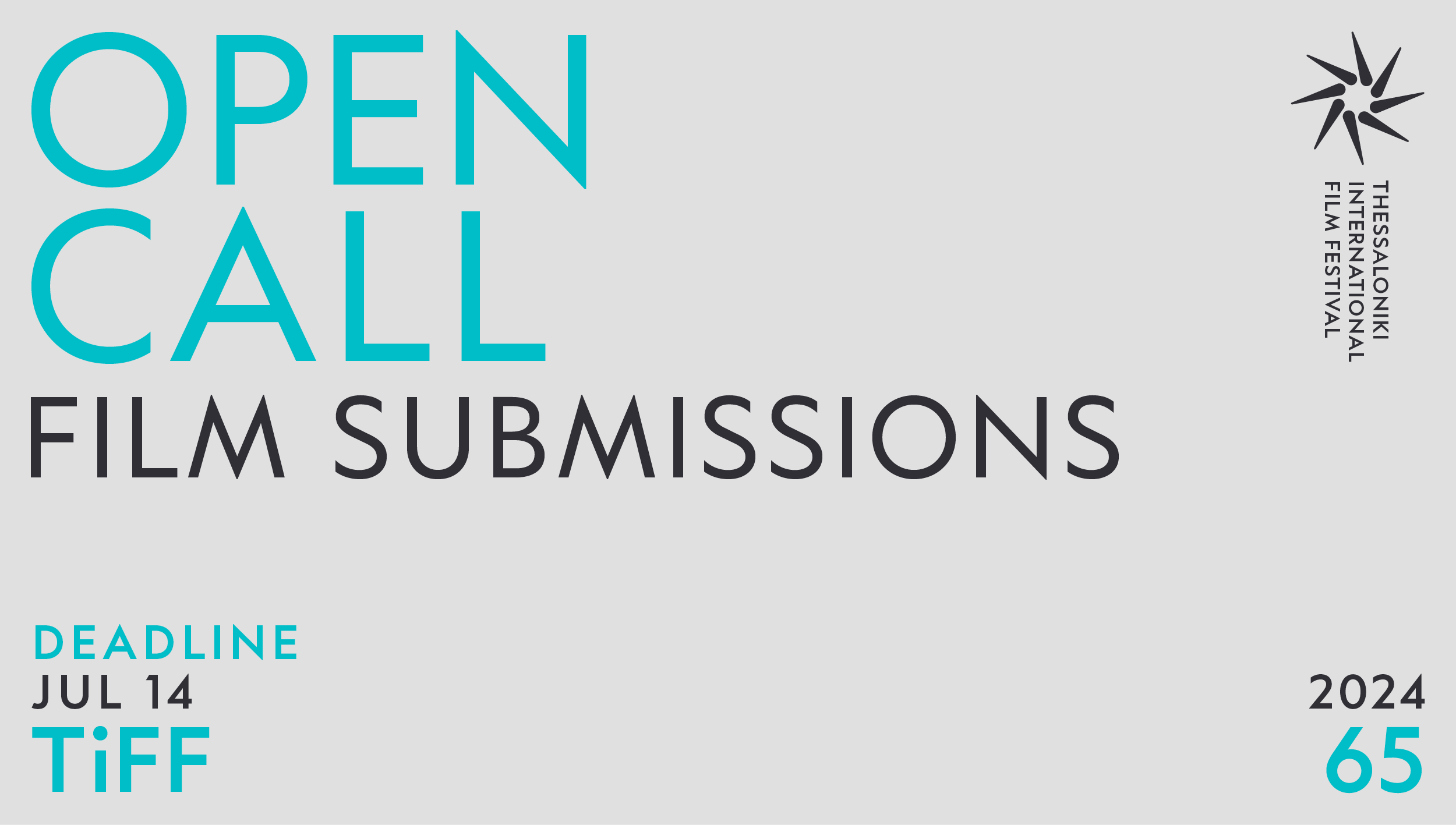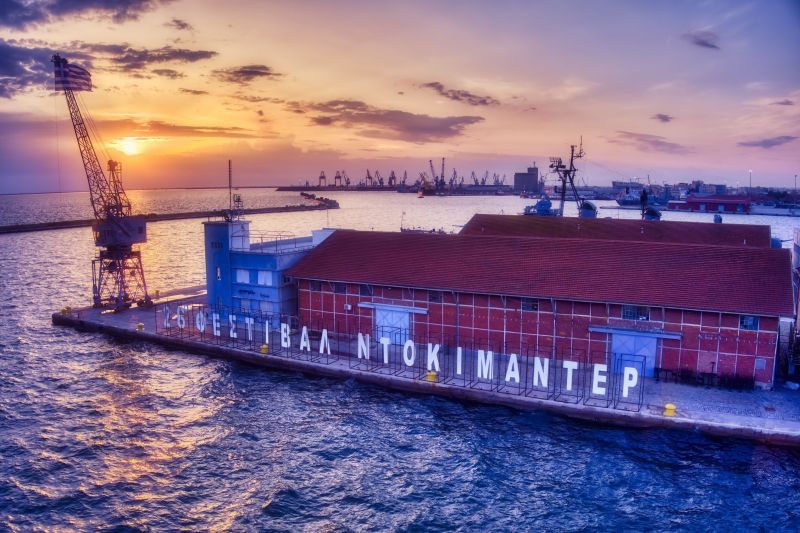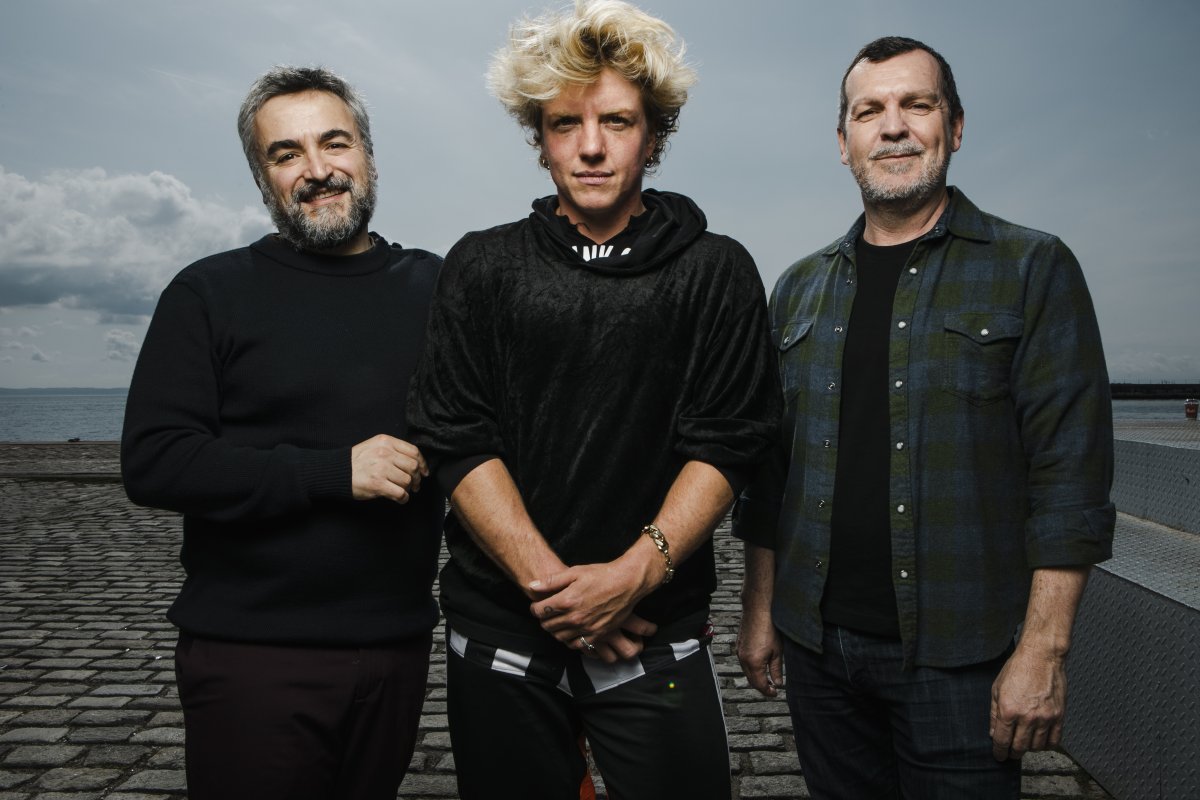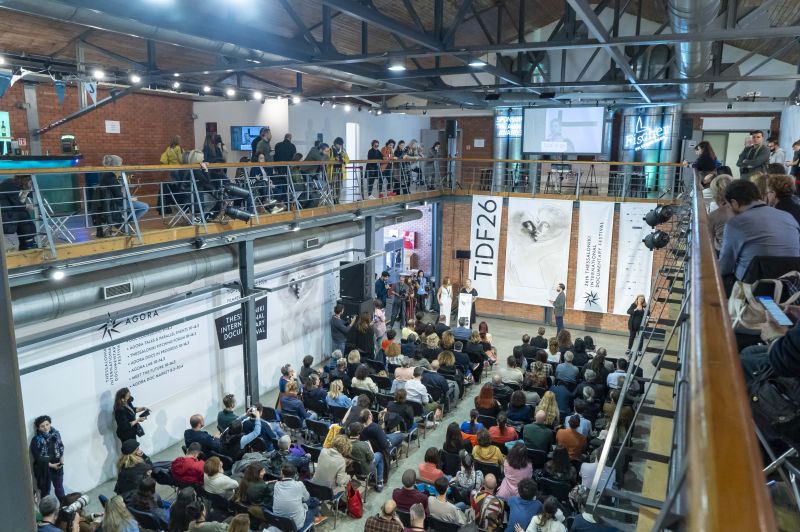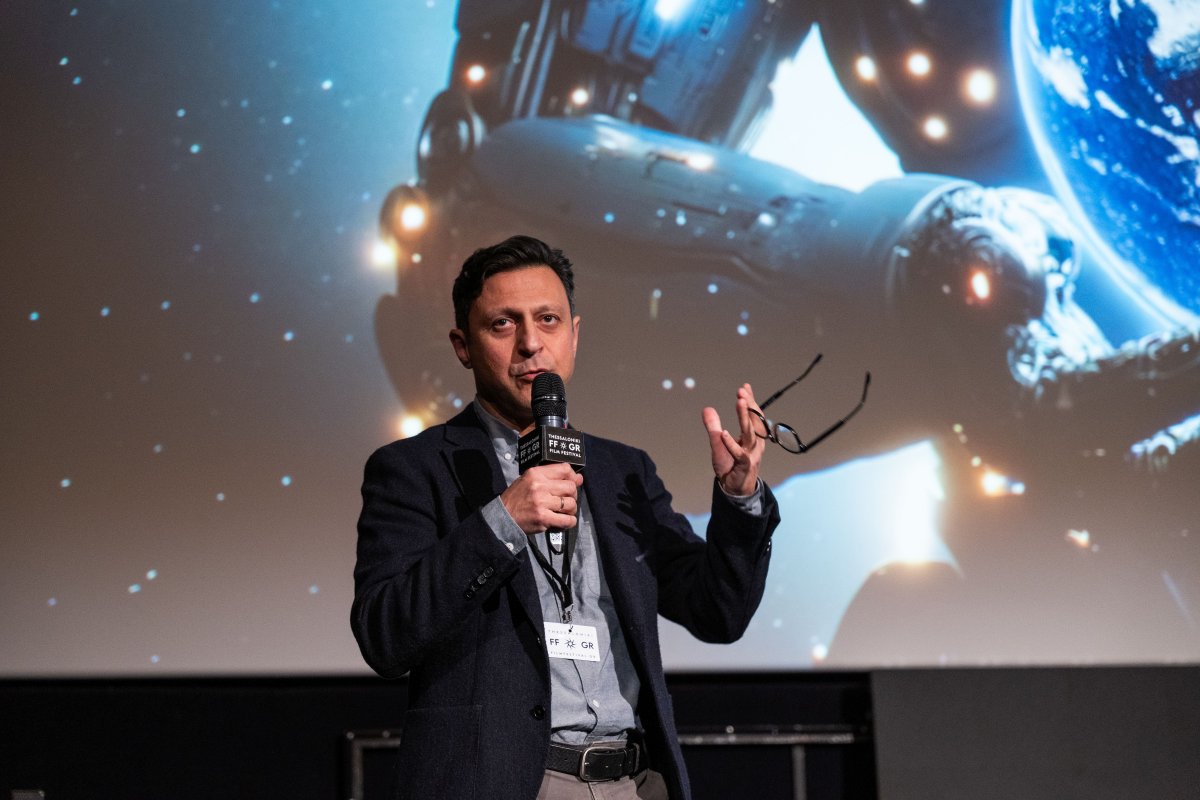Αlejandro Fernandez Almendras (Huacho), Giorgos Drivas (Empirical Data), Rigoberto Perezcano (Northless), Alejo Moguillansky (Castro),
Ray Pride (photographer, film director, journalist)
The close link and blurred boundaries between documentaries and fiction, remaining faithful to the script and the political dimension in their films were all issues that were touched upon during the sixth 50th TIFF Just Talking session at the Old Pump Station. Journalist Elena Christopoulou coordinated the talk.
The participants included Αlejandro Fernandez Almendras (Huacho), Giorgos Drivas (Empirical Data), Rigoberto Perezcano (Northless), Alejo Moguillansky (Castro) and Ray Pride (photographer, film director, journalist).
Segments of the participant directors’ films were screened and triggered off a discussion that had to do with the biographical elements in the various narratives. “To achieve a more documentary dimension in my work, I limited both music and dialogues”, said Rigoberto Perezcano, film director of Norteado (Northless) a film that deals with illegal Mexican immigrants in the USA. On the other hand, Αlejandro Fernandez Almendras in his film Huacho focuses on a family of farmers in south Chile which is trying to adapt to a world in constant change. “I didn’t use professional actors in my film despite the fact that it is fiction with elements from real life”, he explained. Giorgos Drivas whose film Empirical Data is part of the 50th TIFF 4th Digital Wave expressed a keen interest in the dialectics that oppose documentaries and fiction films. “In my film a migrant arrives in Greece and wants to become an actor. Although this is a true story, the film is about all those who are like the main character, it is not a film exclusively centered on one personal life.” Argentinian director Alejo Moguillansky, talking about his film Castro in which the main character is always on the run and goes to the capital city with the girl he loves, said: “Every film is its own documentary. Chaos and accurate precise movements in the same shot are the result of precisely this dimension, in which the scenario is both present and absent at the same time.”
The participants agreed with this point of view and Αlejandro Fernandez Almendras added: “We didn’t keep a single item from the script. Personally I wanted to give the impression that there was no camera filming these people. What’s more, I let them express themselves freely, in their own dialect, I never tried to impose the official language of Chile. The result is that many Chileans who watch the film cannot understand what the characters are saying.” To this, Rigoberto Perezcano stressed that: “I love spontaneity and let it guide me and the actors.”
At this point Ray Pride with his photographer look keenly noted the similarities in the use of locations made by all three Latin-American directors. To this Αlejandro Fernandez Almendras stressed that: “I could have shown the landscape of Chile in my film but I didn’t because I didn’t want the viewer to see it as something exotic and remote, something that could only happen at the other end of the world. On the contrary, I wanted to show that what happens here is something normal. This is why I choose locations that would be familiar to all viewers.” Both Rigobero Perezcano and Giorgos Drivas worded their dislike for artificial locations. The former said that he only worked in natural surroundings and finds this an indispensable factor as much for himself as for his crew, and the latter declared that he always looks for authenticity in his locations: “I don’t like to focus on man –in the negative sense- as in many North-American films which create a neutral sort of environment as if nothing else mattered but the character.”
As for the political dimension in their films, a question put to them by journalist Elena Christopoulou, all film directors agreed that their films are political to some extent. “My film is definitely political and deals with financial issues and how money changes hands”, said Αlejandro Fernandez Almendras. “Migration cannot not be a political issue, though in my film I also refer to the ‘migration’ of feelings”, Rigoberto Perezcano said, and Alejo Moguillansky declared that many viewers expect Latin-American films to have a political dimension.
Closing the Just Talking session, Giorgos Drivas said that: “Politics is in everything. It’s all a question of power and ruling. Just deciding to make a film is a political act.”




